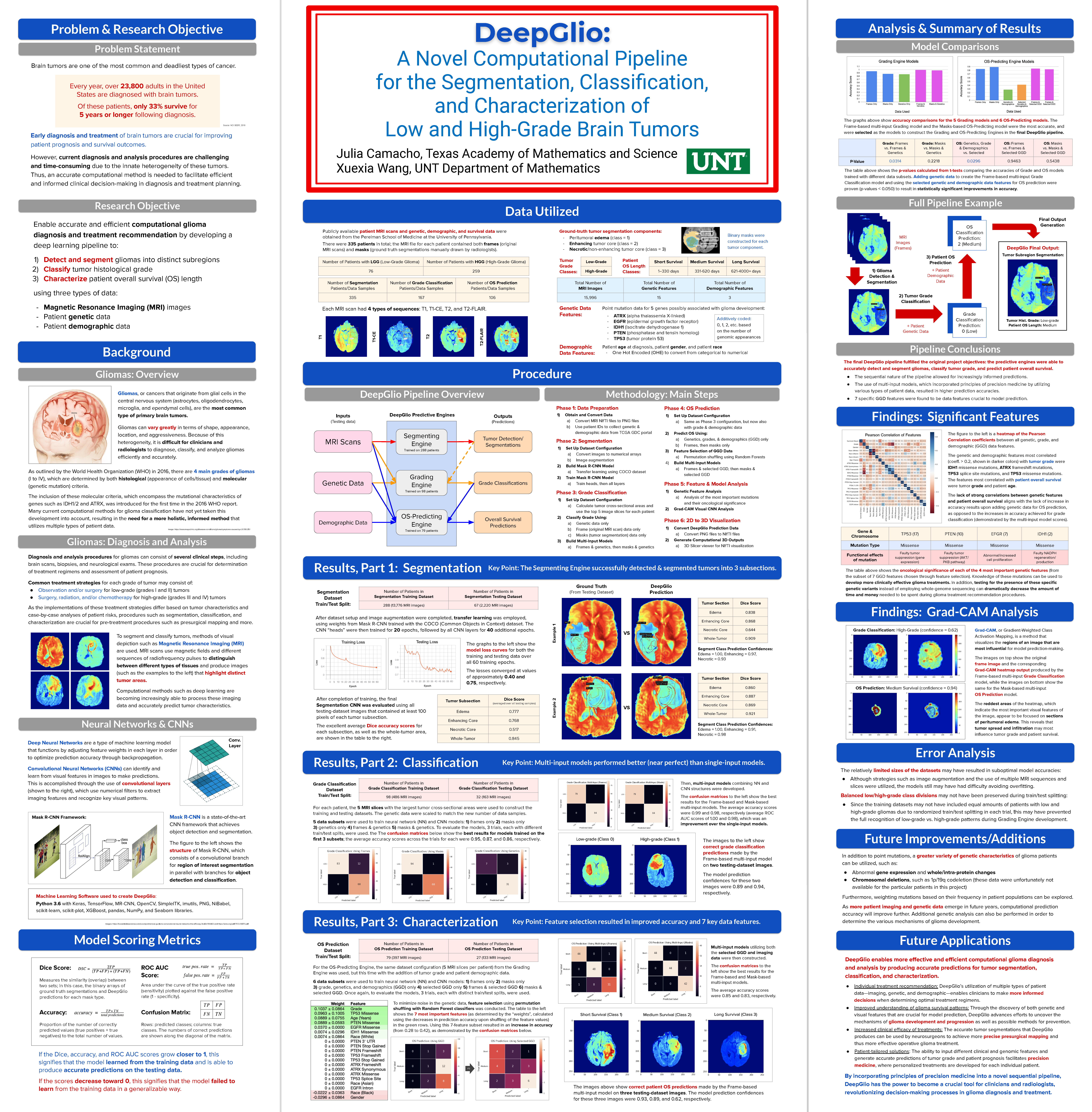First Name:
JuliaLast Name:
CamachoMentor:
Dr. Xuexia WangAbstract:
Every year, over 23,800 adults in the United States are diagnosed with brain tumors, and only 33% survive for 5 years or longer following diagnosis. Early diagnosis and treatment of gliomas, the most common type of brain tumors, are crucial for improving patient prognosis. However, due to the innate complexity and heterogeneity of these tumors, current analysis procedures are challenging and time-consuming for radiologists and clinicians. To address this problem, this project developed DeepGlio, a machine learning pipeline to segment, classify, and characterize low and high-grade gliomas using deep learning methods and patient MRI, genetic, demographic, and survival data.
DeepGlio consists of three main components: first, visual tumor detection and segmentation into 3 distinct subregions using patient MRI scans; second, histopathological grade classification using these segmentation outputs as well as patient genetic data; and third, patient overall survival (OS) prediction using segmentation, grade, genetic, and demographic data. To achieve these goals, state-of-the-art convolutional and deep neural networks were used to construct predictive engines.
Evaluation of the pipeline using validation data showed promising results. Tumor detection and segmentation produced excellent visual mask and bounding-box predictions, with an average whole-tumor Dice accuracy score of 0.85. The grade classification and OS prediction engines achieved near-perfect ROC AUC and accuracy scores. After pipeline evaluation, feature selection and Grad-CAM visual analysis were performed, identifying 7 key data features and the model mechanisms behind accurate grade classification and OS prediction. Through its novel construction and implementation, DeepGlio enables accurate and efficient computational glioma diagnosis and analysis.Poster:





